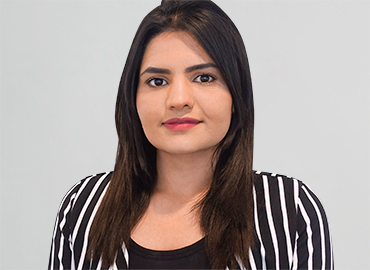This Website uses cookies to improve your visit on our website. More Info
Content and Prospects
- MBS QUICK FACTS:
- State-recognized since 1999
- September
- 18 or 24 Months
- English
- Book a consultation appointment

DID YOU KNOW?
In 2024, Munich Business School secured the top spot among private universities of applied sciences in the field of business administration from a recruitment perspective for the fifth time in a row.
The accounting program is a course of study that focuses on the fundamentals and in-depth knowledge of bookkeeping, financial reporting and accounting. It prepares students to analyze, evaluate and manage the financial health of a company. In addition to traditional bookkeeping, the program also covers topics such as controlling, tax law, auditing and financial management. The aim of the course is to provide students not only with the technical skills to correctly record and analyze financial data, but also to develop an understanding of strategic decisions in the financial sector. It is a practice-oriented course that requires both analytical and economic skills. The accounting program is ideal for people who have an affinity for numbers and analytical thinking and at the same time want to take on strategic tasks in the financial sector.
Download information material
In our exclusive and non-binding information material, you can find out everything you need to know about:
To successfully complete a degree in accounting, both formal requirements and personal qualities are important. Here is an overview:
A degree in accounting requires both a knowledge of the fundamentals of mathematics and economics and personal qualities such as accuracy, analytical thinking and a sense of responsibility. With these skills and a solid work ethic, you have a good chance of successfully completing your studies and starting an exciting career.
In Germany, there are various courses of study that specialize in accounting or related fields. Here are the main options:
From classic bachelor's and master's programs to dual study programs and specialized or international options, there are many ways to study accounting in Germany. The choice depends on individual interests, desired specialization and professional goals.
At Munich Business School, you can study Finance in the Master's program with a focus on accounting. This gives you the perfect mix of business knowledge and practical experience and project management skills, for example through a business project, to help you shape your future according to your ideas. These are the most important facts about studying at MBS:
18 or 24 Months
Master of Arts
Every September
Master in Finance
English
€ 8.580 per Semester
In person at the campus in Munich
Electives, Specializations & Business Project
Areas of specialization such as Corporate Finance, International Finance etc.
That's what you will learn in your
Accounting Studies
| Subject area | Contents |
|---|---|
| Fundamentals of accounting | Introduction to bookkeeping and accounting, creating and analyzing annual financial statements, financial accounting |
| cost and performance accounting | Cost calculation and pricing, break-even analysis |
| Controlling | Budgeting and financial planning, key figure analysis (e.g. ROI, EBIT), operational and strategic controlling |
| Taxation and Tax Law | National and international tax law, corporate, income and sales tax, tax optimization |
| Auditing | Auditing of annual financial statements (HGB, IFRS), auditing and risk assessment, basics of auditing |
| Financial Management and Investment | Corporate finance, investment calculations and decisions, liquidity management |
| International Accounting | IFRS and US-GAAP standards, international accounting differences, financial reporting globally |
| Business law | Commercial and corporate law, contract law, legal framework for financial decisions |
| Data analysis and digitalization | Accounting software (e.g. SAP, DATEV), big data analysis, digitalization and automation |
| Soft skills and practical competencies | Presenting financial data, teamwork and project management, communicating with stakeholders |
| Practical experience | Internships in companies, project work (e.g. financial analyses, case studies), thesis in cooperation |
The accounting degree program covers a broad range of topics, including both the theoretical fundamentals and practical applications. You will learn how financial processes can be controlled, analyzed and optimized, and will be prepared to take on a key role in financial management in a wide range of industries.

A business degree with a focus on accounting offers a broader base and more diverse career opportunities than a pure accounting degree. While a degree in accounting focuses mainly on accounting, tax law and financial reporting, a business degree covers many other areas such as marketing, human resources, corporate governance and business law. This additional breadth gives you a more comprehensive understanding of how a company operates and makes you more flexible in the job market.
With a focus on accounting, you will still specialize in a sought-after field and can work in areas such as controlling, auditing or financial management. At the same time, you will not be limited to this area and will have the opportunity to develop in other business fields. Thus, a business degree with a focus on accounting combines specialized knowledge with broad management skills, which makes you particularly well-qualified for leadership positions.

Munich Business School not only offers you a first-class business degree, but also focuses on international business so that you can pursue your chosen career anywhere in the world after graduation. The MBS Master in Finance offers many highlights such as semesters abroad, internships, business projects, plenty of networking opportunities and much more. At Munich Business School, you can expect small study groups, dedicated teachers and award-winning programs. But more importantly, your name matters to us. Here, you are not an anonymous member, but the driving force that motivates us every morning. As a small, private university, we take time for your concerns and offer you a customized study experience. Our lecturers have extensive practical experience and teach you skills that really count. In addition to sound business knowledge, we also promote values and abilities that, as a future accounting expert, will bring you closer to sustainability and social responsibility and optimally prepare you for a wide range of professions.
Munich Business School offers some unique advantages that are possible because of the structure of a private university of applied sciences. You will benefit from the following points during your studies at MBS:
Specialists as guest lecturers and professors with business experience
Support through small class sizes and networking events
in finance and management
A broad business degree and specialized knowledge in a range of different areas
One business project and many networking opportunities
The accounting program is divided into different phases and ends with a recognized academic degree. The typical course of study is summarized below:
Orientation phase (1st–2nd semester)
In the first semesters, students learn the fundamental knowledge and methods that form the basis for further study:
Specialization phase (3rd–5th semester)
In the second phase, the focus is on deepening and specializing knowledge:
Application phase (6th–7th semester)
In the final phase of the bachelor's program (or in the master's program), the focus is on practical application and specialization:
Bachelor's degree
After graduating with a bachelor's degree, graduates can take up entry-level positions in accounting, controlling or auditing.
Master's degree
The Master's degree enables access to management positions or specialization, e.g. in international accounting or company valuation.
Optional: additional certificates
After graduating, students can gain professional qualifications that are highly regarded in the industry, such as:
The program is designed to combine theoretical knowledge and practical application, which means that alumni are well prepared for the demands of the professional world.
APPLICATION
You must meet certain academic, linguistic and, in some cases, professional requirements to be eligible for our Master’s in Finance. You can submit your application documents at any time. However, given the limited number of spaces on our programs, we recommend applying well before your preferred start date.
The main requirement for admission to the Master International Business study program is a successful Bachelor's degree (180 ECTS or more). Applicants with a degree in Business Studies/Management/Economics are entitled to apply for the program directly, applicants without a degree in economics can qualify for the program by completing the Pre Master Program. Upon request, we will gladly verify your documents in advance. Please contact your Program Advisor.
English Proficiency
Applicants must proof their English language skills by passing one of the following language tests:
Note: If the test is also used to apply for a visa, please check the requirements of the respective embassy in advance.
Test results can only be accepted if achieved within the last two years. If you are unable to obtain your test results before handing in your MBS application, please inform us about your planned test date.
The English proficiency test can be waived by the following candidates:
We accept applications all year round. However, we recommend that you apply as early as possible, as the number of places is limited.
Spring semester (Master International Business only)
Applicants from Vietnam, China and India should allow an extra month to apply for the relevant visas.
Winter semester
Applicants from Vietnam, China and India should allow an extra month to apply for the relevant visas.
You must submit the following mandatory documents for us to consider your written application:
*Please submit the relevant original document, or a certified copy, as soon as you are accepted onto the program.
Online application:
Apply online for the Master’s program in International Business
Eligible applicants will be invited to a personal interview, either in person in Munich or online via Microsoft Teams (approx. 30–45 minutes). The interview may include examining a case study.
As soon as you are accepted onto the program, you will have the opportunity to get to know Munich Business School a little better – before you make the final decision about your studies. And, of course, our student advisors will be available to answer any questions you have.
When we confirm your place, we will send you confirmation of your acceptance along with two copies of your study contact. To secure your place, please sign and return one copy of the contract to us within two weeks. You can keep the other copy for your files.
Additionally, in order to be formally accepted onto the program, you must pay a one-off matriculation fee of €690 (EU/EFTA) or €1,490 (non-EU) and make an advance payment of €1.990. This advance payment will be deducted from your first tuition fee payment.
If you are a non-EU citizen, you must apply for a student visa in order to start your studies in Germany. You will require a letter of invitation from Munich Business School to secure your visa – which we will be happy to provide once we receive your signed student contract and a copy of your passport.
Munich Business School offers attractive scholarship programs amount up to EUR 4,000 of the overall tuition fee. (Up to EUR 2,000 on the 1st and 2nd master's semester).
If you wish to apply for a scholarship, you should include an application when you submit your overall application. You can find further information on our scholarships and financing page.

"There is an appropriate balance of subjects with hard and soft skills, with important courses such as finance and equally important courses such as agile management or resilience management. Depending on your focus, you can dive deep into different areas.
The mandatory 30-week internship provides a good balance to the theory."
E. on StudyCHECK
The salary in the accounting field can vary depending on qualifications, professional experience, company size and location. Here are the main influencing factors and typical salary ranges:

With growing professional experience and additional qualifications, there are numerous opportunities for advancement in accounting:
The salary in accounting is attractive and offers good development opportunities, especially for those who specialize or aspire to management positions. Accounting graduates can expect a solid starting salary, which increases significantly with experience and additional qualifications.
The Munich Business School in Numbers
The following table shows the wide range of career paths that an accounting degree can open up, from operational activities to strategic and specialized positions.
| Job title | Description |
|---|---|
| Accountant | Responsible for recording and managing financial transactions and business records. |
| Chartered accountant | Specialist in preparing balance sheets and annual financial statements in accordance with national or international standards. |
| Controller | Monitoring of company finances, budgeting and analysis of deviations to optimize processes. |
| Tax consultant | Advising companies and individuals on tax matters and preparing tax returns. |
| Auditor | Auditing annual financial statements and evaluating the economic situation of a company. |
| Finance manager | Managing the finance department and strategically planning a company's finances. |
| Risk manager | Identifying, analyzing and minimizing financial risks for companies. |
| Treasury Manager | Responsibility for liquidity and cash flow management as well as the control of financing strategies. |
| Internal Auditor | Conducting internal audits to ensure compliance and efficiency of internal processes. |
| Financial Analyst | Analysis of financial data, preparation of reports and support for investment decisions. |
| Accounting Consultant | Advising companies on the implementation of accounting systems and financial strategies. |
| Head of Accounting | Managing and coordinating a company's accounting and finance teams. |
| International Accountant | Specializing in accounting in accordance with international standards (e.g. IFRS, US-GAAP). |
| Forensic Accountant | Investigating and detecting financial irregularities or fraud. |
If you would like to find out more about the profession of an accountant, please take a look at our corresponding job profile:
Accountant Job ProfileDie Vielfalt im Bereich Accounting spiegelt sich in verschiedenen spannenden Berufsfeldern wider. Hier ein etwas näherer Einblick in drei Berufsbeispiele:

Responsibilities: Tax consultants support companies and private individuals in preparing tax returns, advise on tax optimization and represent their clients before tax authorities. They review balance sheets and develop strategies to minimize tax burdens without violating applicable law.
Special feature: This profession combines in-depth knowledge of tax law with strategic thinking. Tax advisors often work independently or in specialized law firms. The profession offers high income prospects and many career opportunities.
Responsibilities: Controllers monitor a company's finances, create budget and financial plans, and analyze deviations between planned and actual results. They develop reports, provide management with a sound basis for decision-making, and optimize internal processes.
Special feature: Controllers are the strategic navigators of the company and contribute significantly to increasing efficiency. They often work in close collaboration with management and have insights into all financial areas.


Responsibilities: Auditors check the annual financial statements of companies for accuracy and compliance with legal requirements. They also assess the economic situation of a company and advise on financial and accounting matters.
Special feature: Auditors enjoy a high level of trust because they ensure the financial integrity of a company. The work is demanding but offers exciting insights into different industries and complex financial structures, especially in global companies.
DID YOU KNOW?
After an MBS Bachelor's or Master's degree, you can also take up all these professions abroad without any problems.
The difference between controlling and accounting lies in their focus: accounting deals with the collection, documentation and reporting of financial data, i.e. the “what happened?”. Controlling, on the other hand, uses this data to make strategic decisions, control processes and plan for the future, i.e. the “what will happen?”. While accounting creates the basis, controlling ensures the interpretation and application of the information.
Yes, financial accounting is the accounting system used to prepare financial information for external stakeholders such as investors, lenders or authorities. The focus here is on transparency and compliance with legal requirements.
Business accounting is the systematic recording, analysis and reporting of a company's financial and business data. It includes both external financial accounting for stakeholders and internal management accounting to support operational decision-making.
Global Accounting refers to the accounting and financial reporting of companies that operate internationally. It encompasses the application of international standards such as IFRS or US-GAAP to ensure comparability of financial information across borders and compliance with global regulations.
Accounting in business administration is the area that deals with the collection, analysis and control of a company's financial data. It combines bookkeeping, accounting and controlling to support economic decisions and ensure the financial stability of the company.


